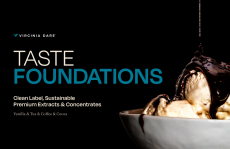Danisco intros probiotic studied for antibiotic recovery
which it says was seen in the first of a series of
condition-specific studies to help restore the beneficial bacteria
in the human gut after taking antibiotics.
Antibiotics, commonly taken to address a range of health conditions, may have an unfortunate affect on gut health as they do not discriminate between disease-causing and beneficial bacteria, thus disrupting the balance of microflora in the gut. This can result in gastrointestinal problems like diarrhoea, rashes and fever, and allergic reactions.
In an effort to address this, the Danish company developed a mixture of probiotic strains, which it says was shown in a placebo-controlled study to return bifidobacteria to normal baseline levels within two weeks of stopping taking antibiotics.
Moreover, the population and balance of microintestinal flora was seen to be better in the Howaru Restore group.
"The research team was able to obtain these results and track the bacterial environment in the gut due to the breakthrough use of new and novel genomic methods of strain tracking and identification," said Danisco.
It has not indicated whether the study is intended for publication and NutraIngredients.com has not seen the full methodology or results.
With pharmacists filling in more than 900m prescriptions for antibiotics around the world each year, according to Kalorama, a division of PackagedFacts.com, the potential for Howaru restore to be used in probiotic products is significant.
At present, doctors tend to advise yoghurt consumption to deal with the effects of antibiotics on the gut, but not all yoghurts are active and those that are contain lower doses of beneficial bacteria than Howaru Restore, according to the company.
The ingredient is suitable for use in supplements and has demonstrated survivability of up to two years in dry, capsule form. "Many probiotic suppliers employ a one-strain-does-it-all approach to probiotic efficacy," said Scott Bush, global probiotics business director. "[Danisco's screening strategy] creates products that consumers can be confident will deliver maximum efficacy and an optimum delivery of health benefits".
In the current fragmented regulatory environment for health claims, manufacturers tend to err on the side of caution and make only nebulous claims.
Probiotics represent one area that is expected to particularly benefit from the new EU legislation on health claims, expected to come into force in January 2007.
Even though the European market for spoonable probiotic yoghurts alone was worth US$1.6bn (€1.25bn) at retail in 2005, according to Euromonitor International, to date probiotics have tended to err on the side of caution with their claims, making only nebulous marketing statements to the tune of 'makes you feel better', or boosting energy.
Fabienne Saadane-Oaks, president of Danisco Cultures, told NutraIngredients.com in August that she expects that health claims will clarify the message for the consumer. In order for claims to be approved, however, there needs to be a solid scientific evidence of health efficacy.
"We have a continuous pipeline of health efficacy studies," she said, "and this has been our strategy from the start."
Danisco's probiotics fall within its global cultures division, which screens culture strains to pin point the best strain for a particular use. Howaru Restore is having its first industry outing in the US at SupplySide West in Las Vegas.













